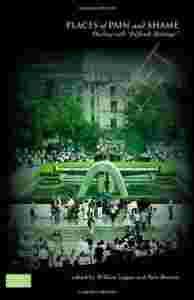|
''Places of Pain and Shame'' is a cross-cultural
study of sites that represent painful and/or shameful
episodes in a national or local community's history, and
the ways that government agencies, heritage
professionals and the communities themselves seek to
remember, commemorate and conserve these cases - or,
conversely, choose to forget them. Such episodes and
locations include: massacre and genocide sites, places
related to prisoners of war, civil and political
prisons, and places of 'benevolent' internment such as
leper colonies and lunatic asylums. These sites bring
shame upon us now for the cruelty and futility of the
events that occurred within them and the ideologies they
represented.They are however increasingly being regarded
as 'heritage sites', a far cry from the view of heritage
that prevailed a generation ago when we were almost
entirely concerned with protecting the great and
beautiful creations of the past, reflections of the
creative genius of humanity rather than the reverse -
the destructive and cruel side of history. Why has this
shift occurred, and what implications does it have for
professionals practicing in the heritage field?In what
ways is this a 'difficult' heritage to deal with? This
volume brings together academics and practitioners to
explore these questions, covering not only some of the
practical matters, but also the theoretical and
conceptual issues, and uses case studies of historic
places, museums and memorials from around the globe,
including the United States, Northern Ireland, Poland,
South Africa, China, Japan, Taiwan, Cambodia, Indonesia,
Timor and Australia. |
|

